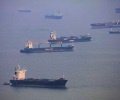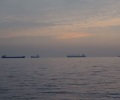Marine insurance and accidents in Russia

Marine accidents
Collision and pollution What rules and procedures (under both domestic and international law) apply to the prevention of, liability for and remedy of:
(a) Collision?
Russia is a party to the Convention for the Unification of Certain Rules of Law with respect to Collisions between Vessels 1910, which was implemented into national legislation by Chapter XVII of the Merchant Shipping Code. Russia has also adopted the International Regulations for Preventing Collisions at Sea 1972.
(b) Oil pollution?
In addition to the International Convention on Civil Liability for Oil Pollution Damage 1969, Russia has ratified the International Convention for the Prevention of Pollution from Ships 1973 (MARPOL).
(c) Other environmental damage caused by a ship?
The International Convention on Civil Liability for Bunker Oil Pollution Damage 2001, Annexes II to VI of MARPOL and the International Convention on Liability and Compensation for Damage in connection with the Carriage of Hazardous and Noxious Substances by Sea 1996.
Salvage
What is the legal regime governing salvage and general average?
Rules relating to salvage are contained in Chapter XX of the Merchant Shipping Code and are based on the International Convention on Salvage 1989, which Russia ratified in 1998. Provisions of Russian legislation which govern the general average (Chapter XVI of the Merchant Shipping Code) are largely based on the 1994 version of the York-Antwerp Rules.
Places of refuge
What framework governs access to places of refuge for ships in distress?
The status and activities of ports are regulated by a number of federal laws, including the Merchant Shipping Code, the Federal Law on Seaports and the Federal Law on Internal Sea Waters, Territorial Sea and Adjacent Zone. In accordance with the latter law, foreign ships (other than naval vessels and state-owned vessels involved in non-commercial operations) can enter Russian ports freely as long as such ports are open to foreign ships. However, in extreme situations, all foreign ships can enter Russian ports, provided that such entry is reported to the competent Russian authorities without delay.
Wreck removal
What rules and procedures apply to the removal of wrecks in your jurisdiction?
Russia is not a party to the Nairobi International Convention on the Removal of Wrecks 2007. Issues relating to foundered vessels and other items considered as wrecks are governed by Chapter VII of the Merchant Shipping Code.
Under what circumstances can the authorities order removal of wreckage?
The competent authorities (ie, harbour masters of respective ports) are entitled to order removal of wreckage where it poses a threat to navigation, creates a risk to the marine environment or obstructs fishing activities, activities of the port or works undertaken in the port.
Insurance
Mandatory coverage
What maritime risks must be covered under the law and what is the mandatory level of coverage?
Russian law provides for obligatory insurance of a number of risks associated with merchant shipping:
salaries and other amounts due to members of the crew – level of coverage determined based on the extent of the relevant shipowner’s liabilities;
claims for loss of life or personal injury caused to passengers and loss of baggage – up to Rb2,025,000 per loss of life and up to Rb23,000 per passenger for loss of baggage;
for registered owners of vessels carrying over 2,000 tons of oil in bulk – liability for damage from oil pollution up to the limit of liability (calculated on the basis of 4.51 million units of account for ships not exceeding 5,000 units of tonnage and 631 units of account for each tonnage unit over 5,000, with a maximum 89.77 million units of account);
for registered owners of vessels involved in carriage of hazardous and noxious substances – liability for damage in connection with the carriage of hazardous and noxious substances up to the limit of liability (calculated on the basis of 10 million units of account for ships not exceeding 2,000 units of tonnage, 1,500 units of account for each tonnage unit over 2,000 and 360 units of account for each tonnage unit over 50,000, with a maximum 100 million units of account); and
claims for damage from bunker oil pollution for owners of vessels exceeding 1,000 tonnage units – up to the limit of liability which would apply in accordance with the rules of limitation of liability under maritime claims.
Insurable risks and ships
What other risks are typically covered by marine insurance contracts concluded in your jurisdiction and what ships are insurable?
Standard hull and machinery, protection and indemnity, war risks and other risks are typically covered by marine insurance contracts, although there is no requirement in the law to insure such risks. The law also does not provide for any specific limitations or requirements in respect of insurable vessels; specific requirements are set by the insurers themselves.
Subrogation rights
What is the legal regime governing marine insurers’ subrogation rights?
Marine insurance contracts are governed by Chapter XV of the Merchant Shipping Code, as well as the general provisions relating to insurance provided in the Civil Code. The insurer that paid out the compensation becomes entitled to claim from a party responsible for causing the relevant losses to the extent of the paid amount and in an order which would apply for claims of the insured or the beneficiary.
Source: Jurinflot International Law Office

 Hellenic Shipping News Worldwide Hellenic Shipping News Worldwide, Online Daily Newspaper on Hellenic and International Shipping
Hellenic Shipping News Worldwide Hellenic Shipping News Worldwide, Online Daily Newspaper on Hellenic and International Shipping





















 PG-Software
PG-Software